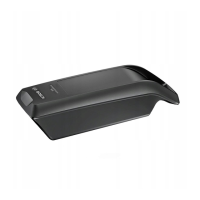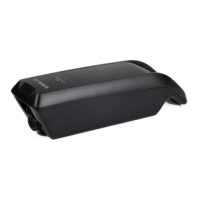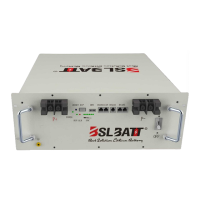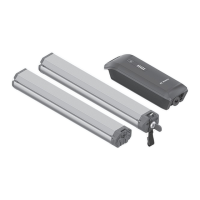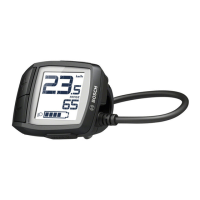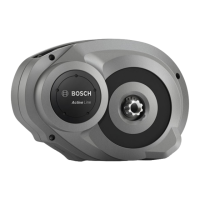REPLACE
OR REPAIR?
When the battery starts to run down
Risks attached to repairing or refreshing Bosch eBike batteries
Lithium-ion batteries are complex, finely tuned systems with a high
energy content. In the case of repair or “refreshing,” i.e. when replacing
originally installed cells with supposedly identical individual cells as part
of a repair, correct function and optimum interaction with the Battery
Management System can no longer be guaranteed. There is a risk that
the Bosch eBike battery pack, once opened, will catch fire due to a short
circuit as a result of improper repair. After it is broken, the seal of the hous-
ing
can no longer be guaranteed. Ingress of water or dust can damage
the monitoring electronics or the cells themselves. Here, too, there is a
risk that the Bosch eBike battery could catch fire due to short circuiting.
These dangers also exist at a later point in time if an eBike battery, once
opened, is used again.
In addition, there is a safety risk, and opening or modifying the battery
may void any warranty or guarantee claims. Furthermore, approval for
transport and safety of the battery, which has been carefully developed
and tested as a type according to international regulations, will be
rendered void.
For safety reasons, batteries must pass an elaborate series of tests in
which the test specimens are pushed to their load limits. Only then may
the batteries be brought to market. These series tests are not feasible
for an individual repaired battery due to the number of test samples
required. All of this can have safety-relevant consequences.
eBike batteries are wearing parts and all
lithium-ion batteries lose capacity over
time. For safety reasons, faulty, old or
“worn-out” batteries should not be
repaired or refreshed, but should be recy-
cled in the appropriate manner.
For safety reasons, Bosch strongly advises against having
batteries repaired. In such cases, it is necessary to replace
the entire product.
292828
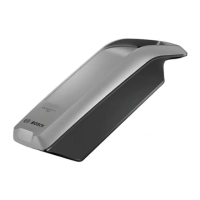
